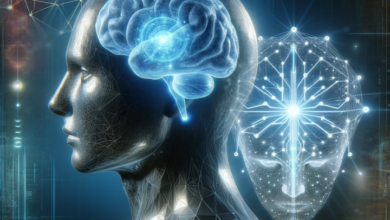
By | Editor
India ranked 126 in the World Happiness Report 2024

The 2024 World Happiness Report (WHR) paints a concerning picture for India. Ranking 126th out of 143 countries, India falls behind its neighbours and countries like Libya, Iraq, Palestine, and Nigeria. This begs the question: why is a nation like India, boasting the world’s fifth-largest economy, struggling on the happiness index?
What are some of the factors India’s low ranking in the World Happiness Report (WHR):
- Scarcity of Jobs:The WHR report points towards a lack of viable formal job opportunities.
- Jobless Growth : When economic growth, marked by an increase in GDP, does not lead to equivalent employment growth, several social and economic issues can arise, contributing to a sense of unhappiness and dissatisfaction among the population.
- This can lead to: Job Insecurity: Constant worry about losing the current job due to competition or lack of growth opportunities can significantly impact well-being. Underemployment: Many end up in informal jobs that offer low wages and limited benefits, hindering financial security and impacting overall satisfaction. Discouragement: Difficulty finding suitable employment can lead to feelings of hopelessness and decreased life satisfaction.
- Income Inequality: The richest 1% controlling 40% of the wealthin India, widens the income gap between the rich and poor. This creates a situation where a large portion of the population struggles to meet their basic needs and feels left behind economically. This sense of unfairness and lack of opportunity can significantly reduce happiness. The vast gap between the rich and the poor creates a sense of unfairness and disenfranchisement.
- Financial Stress: Struggling to afford basic necessities like food and housing creates a constant source of anxiety and reduces happiness.
- Limited Opportunities: Lower income groups often lack access to quality education, healthcare, and other resources necessary for upward mobility, perpetuating the cycle of poverty and impacting life satisfaction.
- Social Exclusion: The feeling of being left behind economically and socially can lead to isolation and decreased happiness.
- Reduced Social Mobility: Extreme wealth concentration can limit social mobility, making it harder for people born into poverty to climb the economic ladder. This dampens hope for a better future, a crucial factor for happiness.
- Social Tension: A vast economic disparity can breed social tension and resentment between different classes. This can erode social cohesion and create a sense of insecurity, impacting overall well-being.
- Limited Investment in Social Programs: When a small percentage of the population holds a large share of the wealth, there may be less investment in public services like education, healthcare, and infrastructure. This lack of investment can hinder poverty reduction and reduce opportunities for everyone, impacting happiness across the board.
- Quality of Employment: Even when jobs are created, they may not be of high quality or provide sufficient income to support a decent standard of living. The prevalence of informal employment, part-time work, or contracts without adequate social protections can contribute to job insecurity and dissatisfaction.
- Quality of Life: Factors such as environmental degradation, urban crowding, and inadequate infrastructure can affect the quality of life, even if economic indicators suggest growth. Issues like air and water pollution, inadequate housing, and traffic congestion can significantly impact daily well-being and happiness.
- Access to Services: Rapid economic growth, if not accompanied by equitable access to quality education, healthcare, and social services, can lead to disparities in well-being. The quality of these services directly impacts life satisfaction and happiness.
Addressing these issues can significantly improve India’s WHR ranking.
- Skilling & Education: Focus on skill development programs that align with job market demands can improve employability and job security.
- Job Creation: Policies that encourage investment and entrepreneurship can lead to the creation of more formal jobs.
- Minimum Wage & Labor Reforms: Ensuring a decent minimum wage and strengthening labor laws can improve the quality of work and financial security for all.
- Progressive Taxation: Implementing a more progressive tax system can help reduce income inequality and provide resources for social welfare programs.
- Economic Conditions: Economic factors, such as GDP per capita, employment rates, and income inequality, play a significant role in determining the happiness of a population. Higher levels of poverty and unemployment can negatively affect happiness scores.
- Social Support: The availability and quality of social support networks, including family, friends, and community connections, are crucial for individual well-being. Countries with strong social support systems tend to score higher in happiness.
- Health: Physical and mental health significantly impact happiness. Access to quality healthcare, prevalence of diseases, and life expectancy are important indicators.
- Freedom: The degree to which individuals feel they have the freedom to make life choices affects their happiness. This includes political freedom, freedom of expression, and the ability to pursue personal goals.
- Corruption and Trust: The level of trust in government and business, as well as the perceived levels of corruption, can influence a country’s happiness score. High levels of corruption and low trust in institutions can lead to lower happiness ratings.
- Education and Environmental Quality: Access to education and environmental factors, such as pollution levels and access to clean water, also contribute to the overall happiness and well-being of a population.
For India, specific challenges such as economic disparity, population density, environmental concerns, and social issues might contribute to its position in the happiness ranking. While India’s economic growth is impressive, this lopsided wealth distribution needs to be addressed to create a more equitable and happy society. Some of the suggestions mentioned earlier, like progressive taxation and investment in social programs, can help bridge the gap and ensure that economic prosperity translates into well-being for all.
It’s important to note that while these rankings provide a snapshot of the well-being of nations, they cannot capture the full complexity of happiness and its determinants within a country.
#worldhappinessreport #happiness
Republished with permission and originally published at Ramesh Ranjan’s LinkedIn






